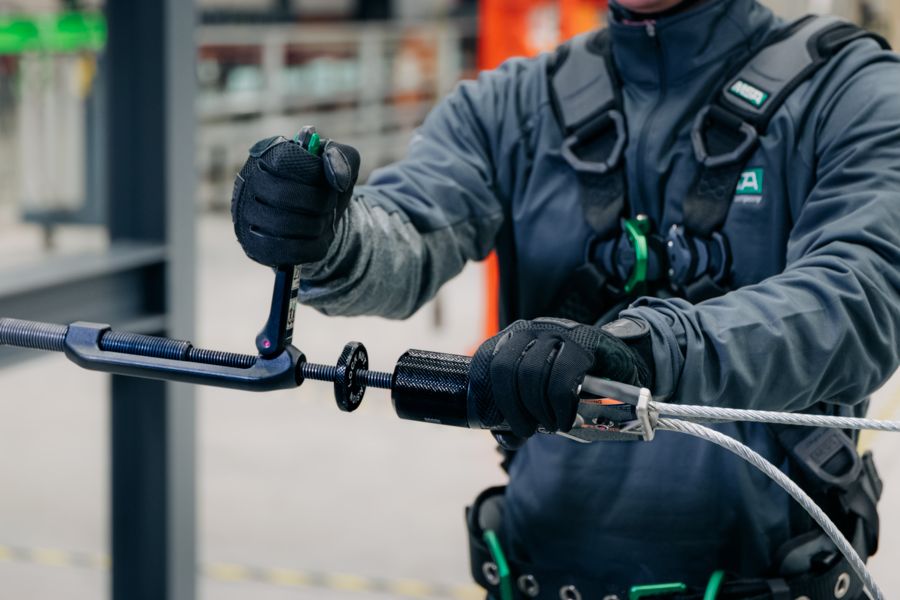
The Rising Demand for Remote High Ticket Closers
In the past, high ticket sales roles were mostly tied to offices, boardrooms, and on-site meetings. But as more companies have shifted online, the demand for skilled remote closers has grown dramatically. Businesses across industries, from coaching programs to luxury services, are discovering that they can reach clients worldwide without geographical barriers. This shift has created a need for sales professionals who can confidently close deals worth thousands of dollars through Zoom calls, phone meetings, or virtual presentations. Unlike traditional sales positions, remote high ticket closing requires strong communication skills, emotional intelligence, and the ability to connect with people through digital platforms. Companies value these closers because they drive revenue while lowering overhead costs of maintaining large in-person teams. As a result, many professionals are now exploring the remote high ticket closing salary potential as a long-term career option.
What Defines a Remote High Ticket Closing Salary
A remote high ticket closing salary is not typically a fixed monthly paycheck. Instead, it often combines commissions, bonuses, and sometimes a base salary depending on the company. The earning potential is vast, with many closers reporting incomes ranging from $4,000 to $15,000 per month once they gain experience. At the entry level, salaries may start lower, especially for those working purely commission-based roles. However, because high ticket products often range between $3,000 and $20,000 per sale, even one or two closed deals can significantly boost monthly income. Another important factor is the structure of the company; organizations that provide steady leads and training tend to offer higher earning stability compared to startups with less predictable pipelines. For motivated individuals, the remote high ticket closing salary can quickly surpass traditional nine-to-five roles, making it highly attractive for those seeking financial independence.
Key Factors That Influence Remote High Ticket Closing Salary
The exact earnings of a remote high ticket closer depend on multiple variables. First, the type of industry plays a critical role. For example, closing for business coaching, consulting, or software-as-a-service often comes with higher commission rates than lower-value industries. Second, product pricing determines the commission potential; the higher the ticket, the larger the payout per deal. Third, performance consistency heavily impacts salary. Closers who maintain a high close rate by building rapport, overcoming objections, and delivering results see their income scale quickly. Additionally, the reputation and credibility of the closer affect long-term opportunities. Those with testimonials, references, and proven experience often land contracts with higher-paying businesses. Lastly, company support systems such as marketing efforts and appointment setters directly impact how much a closer earns since these systems provide the leads that feed their pipeline.
Commission Structures and Their Impact on Earnings
Understanding commission structures is essential when evaluating a remote high ticket closing salary. Most closers work on a percentage basis, often ranging between 10% and 20% of the product’s price. For instance, closing a $10,000 program could generate a $1,000 to $2,000 commission. Some companies also offer tiered commissions, rewarding consistent performers with higher percentages over time. This structure encourages closers to remain loyal and push for better results. For beginners, earnings may start small as they adapt to handling objections and learning the sales process. Experienced professionals, however, can realistically close several deals each week, resulting in five-figure monthly incomes. The balance between high ticket prices and realistic close rates determines true earning power. When assessing opportunities, closers should carefully review whether the company provides a solid pipeline and whether the commission percentages justify the effort.
Essential Skills That Drive Higher Remote High Ticket Closing Salary
Success in remote high ticket closing requires a unique set of skills that directly influence salary growth. Strong discovery skills help closers uncover a prospect’s true needs, positioning the product as the perfect solution. Communication is another crucial factor; remote closers must build trust without face-to-face contact, which demands confidence and clarity in conversation. Negotiation is also vital, as it can turn hesitant prospects into committed buyers while boosting the closer’s commission check. Additionally, resilience plays a huge role since rejection is a natural part of the sales cycle. Closers who consistently train, refine their pitches, and invest in personal development often see their income rise much faster. The most successful remote closers adopt a growth mindset, viewing every conversation as an opportunity to learn and improve. Ultimately, those who master these skills stand out in the marketplace and command higher earnings.
Comparing Remote High Ticket Closing to Other Sales Careers
When comparing a remote high ticket closing salary to traditional sales jobs, the differences are striking. Many corporate sales positions cap earnings with fixed salaries and limited commission structures, often requiring long hours in an office setting. Remote high ticket closing, by contrast, offers nearly unlimited earning potential since income is based directly on performance. Another advantage is flexibility. Closers can work from home, coffee shops, or while traveling, providing a lifestyle many professionals desire. Unlike retail or low-ticket sales jobs, high ticket closing focuses on fewer, higher-value deals, making the workload more efficient for ambitious salespeople. This career path also attracts entrepreneurs and freelancers who value independence and the ability to control their schedules. As a result, more professionals are transitioning from traditional roles to explore remote high ticket closing salaries, seeing them as a faster route to financial growth.
Challenges That Affect Salary Growth in Remote High Ticket Closing
Despite the high earning potential, there are challenges that can affect a remote high ticket closing salary. One major hurdle is inconsistent deal flow, as closers often depend on the business owner’s marketing system to provide quality leads. Without steady appointments, even the best closer may struggle to maintain high income levels. Another challenge is the risk of commission-only roles, which may not be ideal for those seeking immediate financial security. Time zone differences also create scheduling issues when working with clients across the globe, requiring flexibility and stamina. Additionally, the emotional toll of rejection and high-pressure quotas can lead to burnout if not managed properly. To thrive in this career, closers must balance persistence with self-care, ensuring they can perform consistently. While these obstacles exist, those who overcome them often enjoy higher long-term earnings and stronger career resilience.
How to Maximize Your Remote High Ticket Closing Salary
There are proven strategies for increasing income as a remote high ticket closer. Choosing the right niche is the first step, as industries like coaching, consulting, and software tend to pay top commissions. Building a personal brand also helps, as it positions a closer as an authority in their field, attracting premium opportunities. Leveraging mentorship and training programs accelerates skill development, enabling closers to close deals more efficiently. Networking within sales communities provides access to new opportunities and referrals that can significantly boost earnings. Another key factor is selecting companies with solid marketing funnels and appointment setters who provide consistent leads. Lastly, maintaining discipline, setting clear goals, and tracking performance metrics ensures closers continually refine their process and scale their income. By applying these strategies, professionals can maximize their remote high ticket closing salary and achieve long-term success.
Future Outlook for Remote High Ticket Closing Salaries
The future for remote high ticket closing salaries looks promising. As more industries move online, the demand for skilled closers continues to rise. Sectors such as online education, software, and luxury services are especially ripe for high ticket sales, meaning higher commissions for skilled professionals. Additionally, as businesses embrace global hiring, talented closers can secure roles with international companies offering competitive rates. Emerging technologies like AI and automation will reshape the way sales are conducted but are unlikely to replace the human element required in closing high ticket deals. Instead, they may provide more efficient lead generation and follow-up systems, giving closers more opportunities to focus on relationship building and deal closing. For those considering this career path, the outlook is one of growth, financial opportunity, and evolving possibilities in the remote sales world.
Frequently Asked Questions (FAQ)
What is the average remote high ticket closing salary?
The average ranges between $4,000 and $10,000 per month, with experienced closers often reaching six-figure annual incomes.
Do beginners really make money in remote high ticket sales?
Yes, but beginners usually start on the lower end of earnings while they gain experience and build consistency. With proper training and persistence, income can scale quickly.
Are most remote high ticket closer roles commission-only?
Yes, many roles are commission-only, though some companies offer a base salary combined with commissions for experienced closers.
Which industries pay the highest remote high ticket closing salaries?
Industries like business coaching, consulting, SaaS, and luxury services tend to offer the most lucrative opportunities.
How long does it take to earn a six-figure income as a remote closer?
Timelines vary, but many motivated closers reach six figures within one to two years of consistent performance and skill development.


